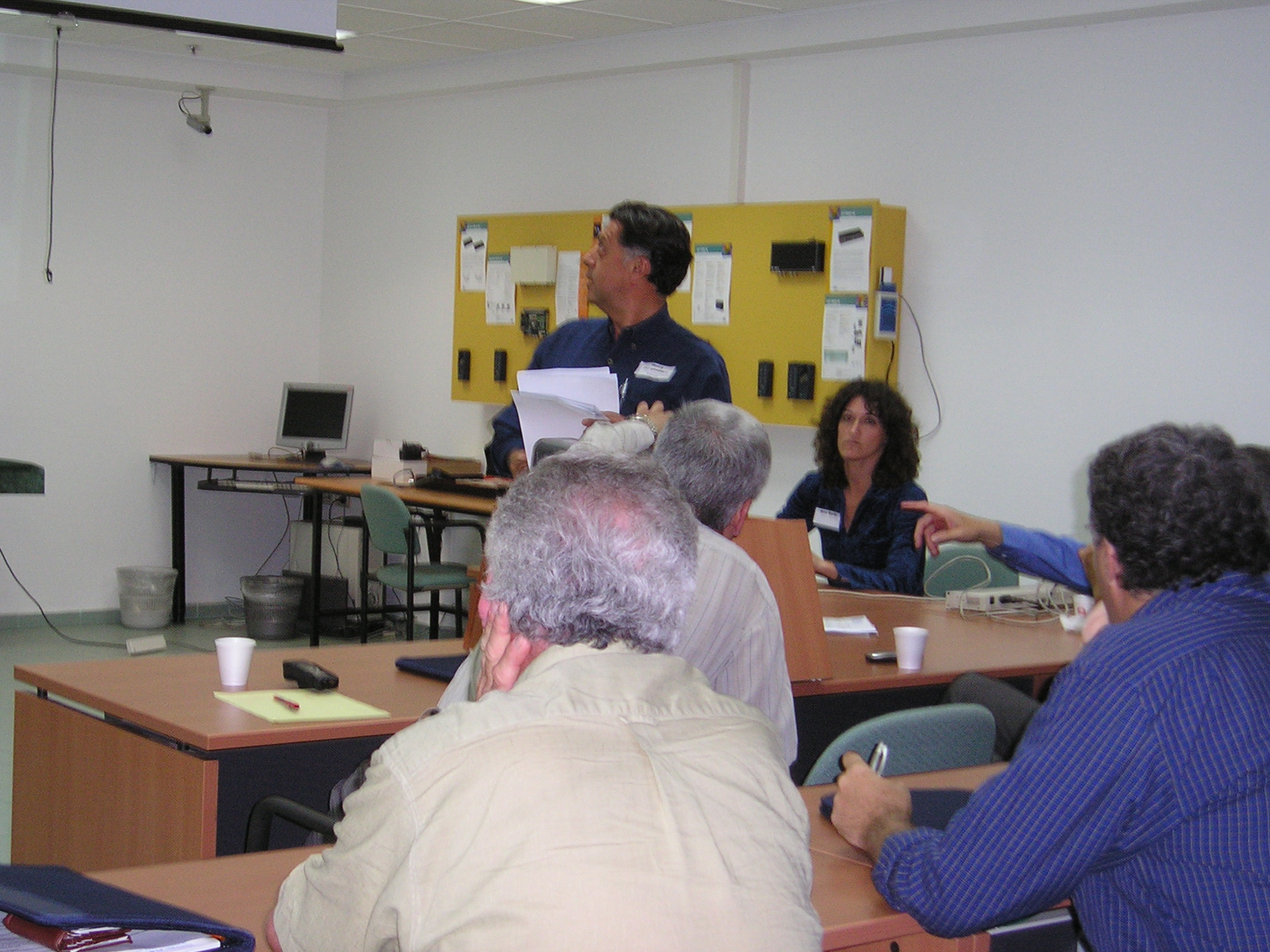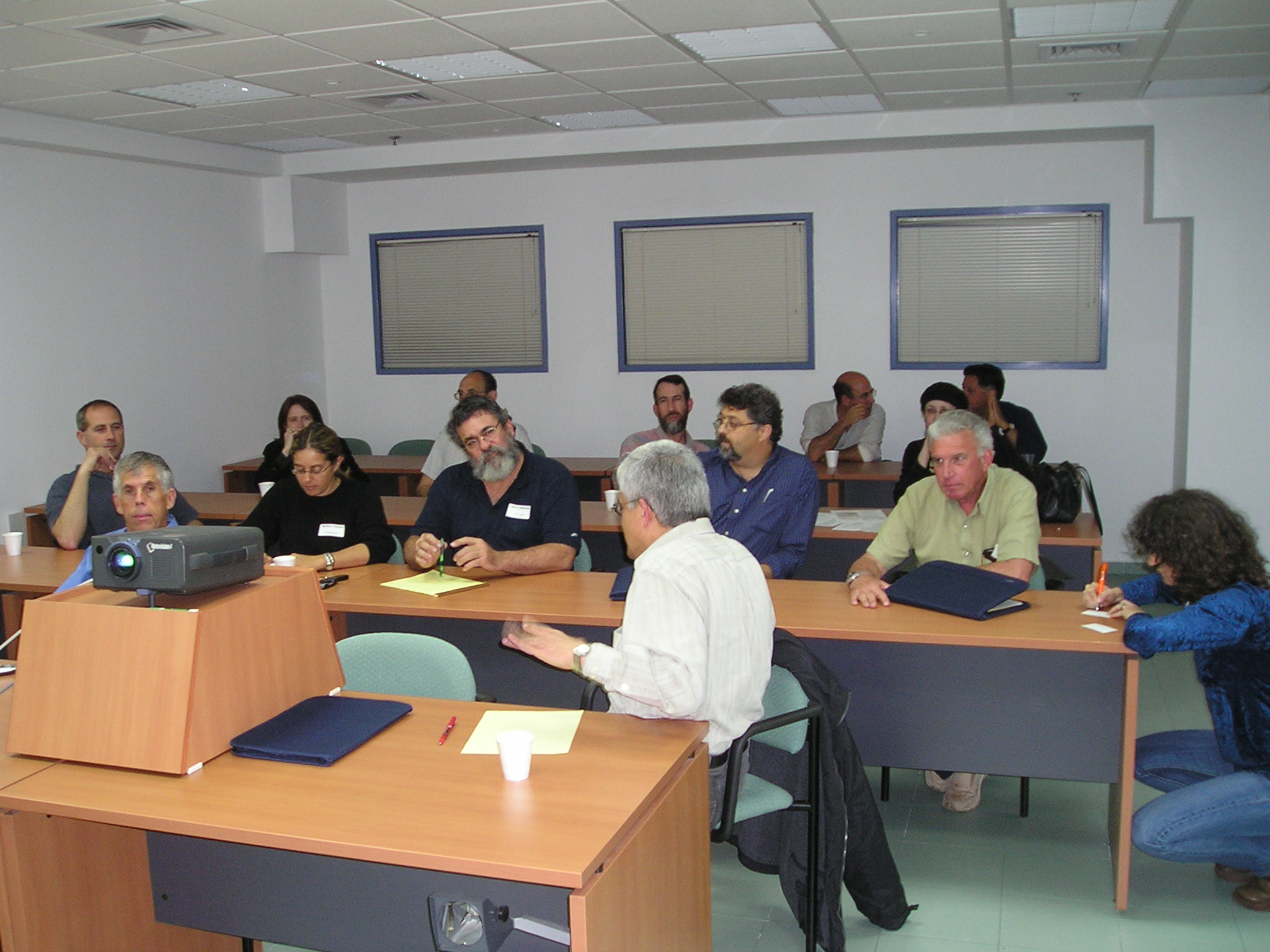For the past year, Henry has been living in Tampa, Florida, considered the sixth largest hi-tech center in the US - with its large data processing industry, aerospace, and large IT depts., plus Disney, and a wide variety of small Internet companies.
Henry's comparisons between technical communication in Israel and in the US were fascinating. He observes a deep contrast between the technical writing scene in the US and Israel, the most obvious being the fact that the vast majority of Americans are native English speakers.
Throughout his lecture, Henry emphasized that the US technical writing market differs tremendously from place to place. Even within the state of Florida there are great differences. Henry concentrated on describing the South Florida market and comparing it with the Israeli market.
Henry feels that Israel offers a relative advantage for TWs, as a hi-tech country where English is not the native language. In general, Israeli TWs use more advanced authoring tools and techniques than those he found in Florida. However, he pointed out that this is not necessarily true of other US markets, such as the Silicon Valley, Boston, or Houston.
In his opinion, the work standards of Florida writers are seemingly less professional than those in Israel, with a lower demand for tools, and a
higher use of temp agencies. Henry was especially surprised to find that Word is still the most frequently used tool in Florida. In many circles,
single-sourcing and Framemaker are just now becoming hot-topics.
Henry also found it strange that while there are US universities where one can study Technical Writing up to the PhD level, the average US TW does not see technical communication as a high status profession.
Henry discussed the current state of off-shore documentation going on in the US. He said that it has been increasing and has become a very sensitive issue. Outsourcing to India, where writers demand a mere $3 to $5 per hour has become quite common for companies with huge amounts of documentation because the apparent savings are tremendous. On the other hand, he found that many smaller companies and those where documentation was needed by their customers are determined to keep the work in house because of the importance they place on the quality and accuracy of their documentation. These companies have little interest in outsourcing, and even less interest in offshore outsourcing.
Henry also made comparisons between Ireland's growth as a hi-tech powerhouse and Israel's relatively modest growth during the same period. According to Henry, there is some outsourcing of documentation to Ireland despite the fact that their rates are as high or higher than American rates. Henry attributed Ireland's success to their willingness to learn, as opposed to an attitude that has been typical of many Israeli companies that we know best.
Regarding salaries, Henry stated that in-house writers in Florida earn between 40-50K, but without all the benefits that Israeli in-house writers
have come to expect. Henry found that rates for freelance writers in the US generally ranged between $20 and $45/hour. He also found that there was a
successful high-end market for TWs and TW companies who offer value added services, such as Version Management. When asked why Words has not tried to introduce that into the Israeli market, both he and others in the audience didn't feel that Israeli companies are willing to pay for this kind of service.
As far as lifestyle is concerned, Henry noted far greater mobility amongst US writers, with their willingness to move from state to state to pursue even a 10-month writing position. Henry also mentioned witnessing an extensive use of networking. Henry ended the talk by observing an overall higher status, professionalism and conditions amongst writers in Israel than in the US.
About the Host:
Synel is a market leader in the field of data collection equipment, with full service solutions for Time & Attendance and Access Control. Synel is publicly traded on the Tel Aviv Stock Exchange, with over 20,000 installations and over 120,000 terminals installed worldwide.












